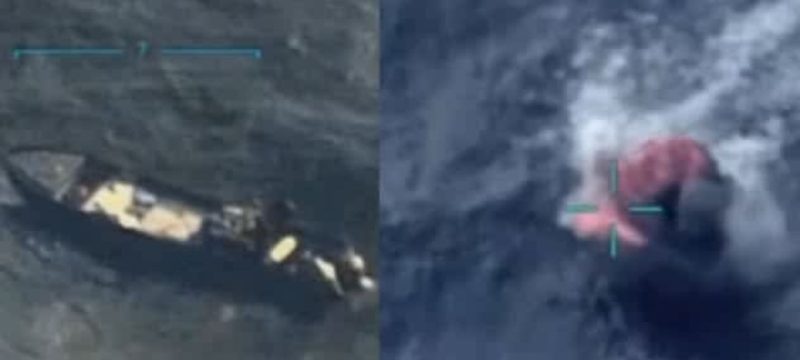WASHINGTON: A U.S. military strike on a vessel off the coast of Venezuela on Tuesday killed six suspected drug traffickers, President Donald Trump confirmed. The operation is part of ongoing U.S. efforts to combat drug trafficking in the region.
Trump described the strike as targeting a designated terrorist organization linked to illicit narcotics networks. He said intelligence confirmed the vessel was involved in drug trafficking, though no specific evidence or group names were provided.
A brief video posted by Trump showed a stationary boat being hit by a projectile and subsequently exploding. The strike comes amid a growing U.S. military presence in the southern Caribbean, including eight warships, thousands of sailors and marines, F-35 aircraft in Puerto Rico, and a nuclear-powered submarine.
The Pentagon informed Congress that the U.S. is engaged in a “non-international armed conflict” with drug cartels. Legal experts have questioned whether the strikes meet international law requirements, arguing that suspected traffickers could have been apprehended instead of killed.
This latest operation follows multiple similar strikes in recent weeks. Details about the identities of those killed or the vessel’s cargo have not been released. Analysts note that these actions reflect a broader strategy to use U.S. military power in unconventional ways.
Venezuelan President Nicolas Maduro has condemned the U.S. strikes, accusing Washington of attempting to remove him from power. In August, the U.S. doubled its reward for information leading to Maduro’s arrest to $50 million, citing alleged ties to drug trafficking, which Maduro denies.
The U.S. military buildup and operations near Venezuela signal heightened tensions in the region. Experts warn that continued action could further strain relations and increase geopolitical risks.
In other news read more about US Gas Slides as Bearish Weather Outlook Signals Muted Demand
As U.S. forces maintain their presence in the Caribbean, officials emphasize that combating drug trafficking remains a top priority, while debates over the legality and impact of such strikes continue internationally.









